Posted by Elena del Valle on May 1, 2017

Filmmaker Dana Ziyasheva
Photo: Dana Ziyasheva
A podcast interview with filmmaker Dana Ziyasheva, is available in the Podcast Section of Hispanic Marketing & Public Relations, HispanicMPR.com. During the podcast, she discusses the film Defenders of Life (see With video – New film addresses underage marriage among indigenous people) with Elena del Valle, host of the HispanicMPR.com podcast.
Dana, born in Almaty, Kazakhstan, in 1972, dreamed of becoming a writer and filmmaker. But in the Soviet Union of her childhood, opportunities for a middle-class Kazakh girl from the empire’s outskirts to make a career in cinema were virtually nonexistent. Instead Dana graduated from Kazakh State University and became a television journalist in the field covering police patrols as well as natural and political disasters.
In 1994, she used her fellowship at the Central European University in Prague, Czech Republic, to foray into Western Europe. No one, not even the Kazakh government, could believe it when the United Nations Educational, Scientific and Cultural Organization in Paris offered her a position as the youngest and first-ever international civil servant from Kazakhstan. Despite initial disapproval from her own government, Dana spent the next 20 years working for the UN in Paris, Iraq, China and Costa Rica. Between missions, negotiating with governments and implementation of international conventions and UN Plans of Action, she was involved in audiovisual projects with Central China TV and China Film Group.
To listen to the interview, click on the play button below, scroll down until you see “Podcast” on the right hand side, then select “HMPR Dana Ziyasheva” and click on the play button below or download the MP3 file to your iPod or MP3 player to listen on the go, in your car or at home from the RSS feed. Some software will not allow flash, which may be necessary for the play button and podcast player. If that is your case, you will need to download the file to play it. To download it, click on the arrow of the recording you wish to copy and save it to disk. The podcast will remain listed in the April 2017 section of the podcast archive.
Posted by Elena del Valle on April 27, 2017
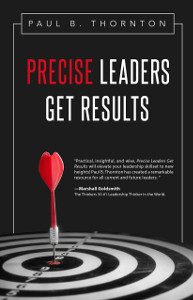
Precise Leaders Get Results
Photos: Paul B. Thornton
In Precise Leaders Get Results! (Motivational Press, $19.95) Paul B. Thornton, professor of business administration at Springfield Technical Community College, discusses his leadership ideas. His new book was written for “parents, teachers, coaches, team leaders, project managers, managers, and leaders at all levels in every type of organization.”
He begins by distinguishing between managers and leaders. Managers, he says, see themselves as preservers of the status quo. They work to achieve organizational goals whereas leaders, who by definition seek growth and improvement, promote changes to improve the status quo at all levels. There are many kinds of change and varying approaches to leadership, but what all leaders share is the desire to make a difference. Why do these issues matter? Because in the past managing employees was enough, he says, but today’s companies require managers to also be leaders.
When asked how the book came about Thornton replied by email via his publicist, “One of the courses I teach at Springfield Technical Community College is principles of leadership. For the past three years, I have used a workbook that contained many of the concepts in my published book, Precise Leaders Get Results. After each semester, I would add new material, reorganize parts, and teak the content in my workbook. I like to think that after each set of changes, the material became more focused and better organized. Overtime this workbook became my manuscript. So the short answer is it took me about three years to go from idea to publication.”
The 190-page softcover book was published in 2016 and is divided into 22 brief and easy to read chapters. Each chapter concludes with a short summary and discussion points.
“’Get results’ means that as a leader you successfully influence people to make positive changes,” the author said when asked about the book title. “Results—the right changes actually happen. The changes improve the situation.”
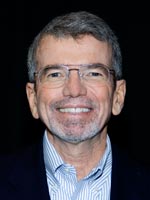
Paul B. Thornton, author, Precise Leaders Get Results
In response to a question about why he decided to write a book about leadership he replied, “Countless change efforts are underway at this very moment all over the world. Despite good intentions, many of these efforts will fail. Various reports and studies have found that 60 to 70 percent of the change initiatives don’t produce the desired results? Why? I find some leaders never get precise in answering three basic questions: Who needs to change (target and secondary groups)? What specific changes are required? Are people able and motived to make the required changes? What resources are needed?
Who will lead the implementation? I’m inspired to help leaders get precise in answering these questions so they will achieve the results they desire.”
Thornton, who has authored 15 books on management and leadership, is also a trainer and speaker. He has conducted management and leadership programs for Palmer Foundry, UMass Medical School, Mercy Health Systems, Kuwait Oil Corp., Human Services Forum, Sunshine Village and United Technologies Corp. According to his biography, through his coaching, seminars and courses, he has helped more than 10,000 people become more effective managers and leaders.

Click to buy Precise Leaders Get Results
Comments:
Filed Under: Books
Posted by Elena del Valle on April 20, 2017
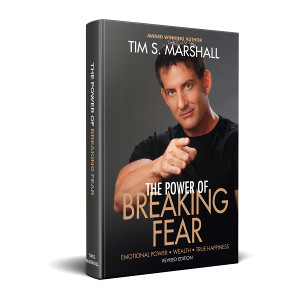 The Power of Breaking Fear
The Power of Breaking Fear
Photos: StarGroup International
Hoping to share his ideas with young professionals, entrepreneurs, and “anyone who is willing to take action to better their life” Tim S. Marshall, a public speaker and entrepreneur, authored The Power of Breaking Fear, his first book (StarGroup International, $29.95). The 212-page softcover revised edition of the book was published this year.
“I wanted to share my belief that anything is possible if you start with awareness and approach fear as a motivation, not an obstacle,” Marshall said by email via his publishing company when asked why he wrote his first book.
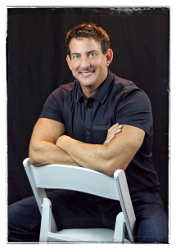
Tim S. Marshall, author The Power of Breaking Fear
The book is written in first person, easy-to-read personal style with thoughts extracted and printed on the page margins in italics. The author emphasizes his experiences and draws conclusions and recommendations from them. For example, he believes that awareness and having an open mind are essential to overcoming fear, and lead to internal and external wealth. He also says that most people are intimidated from pursuing our goals for fear that we are not good enough to succeed.
“There are varying degrees of fear based on individual circumstances and past trauma, so the obstacles may be more significant for some,” he said, when asked if everyone can overcome fear and to what degree. “However, I believe that virtually everyone has the potential to act and overcome. It’s not about disengaging the fear that prevents you from doing things that would harm you. It’s about embracing the fear that holds you back from positive things that you desire and deserve. It’s about becoming aware of those fears that stand between you and your potential and then pushing through the self-doubt and discomfort with intention.
When asked how long it took to publish the book he replied, “I took notes for 25 years. After my divorce, I wrote incessantly for a year and isolated myself in order to express these 25 years of notes, thoughts, and ideas that I gained from interacting and coaching thousands of customers and individuals.”
The author plans 20 Marshall Principles titles in total, including three before this summer. They are Entrepreneurship – Cracking the Code, Young Professionals – Frustration to Freedom, and Sales – Selling Yourself to Sell Anything. Marshall is the founder and former owner of Copysource. He has taught Fortune 500 executives at Citrix, Konica Minolta, and Toshiba.

Click to buy The Power of Breaking Fear
Comments:
Filed Under: Books
Posted by Elena del Valle on April 10, 2017

Dee Tutt, CEO, DTRS Enterprises, Inc.
Photo: DTRS Enterprises, Inc
A podcast interview with Dee Tutt, CEO, DTRS Enterprises, Inc. is available in the Podcast Section of Hispanic Marketing & Public Relations, HispanicMPR.com. During the podcast, she discusses building a beverage company from the ground up with Elena del Valle, host of the HispanicMPR.com podcast.
As a former hairstylist with no prior experience in the beverage industry, Dee spent 30 years perfecting and introducing her brand, Savîle Premium Rumtini, to the market. As her drink increased in popularity across the country, she never gave up her professional dream.
Dee’s creative side took a unique turn when she discovered a talent for mixing cocktails. Inspired by drinks she enjoyed while traveling to her favorite islands in the Caribbean and the Bahamas, she created a unique Caribbean style punch for a gathering of close friends and family. Little did she know how popular her kitchen creation, perfected over 30 years, would one day become. Named Savîle Premium Rumtini, the exotic drink became a local phenomenon, and she was encouraged to manufacture it for mass production.
To listen to the interview, click on the play button below or scroll down until you see “Podcast” on the right hand side of the page, then select “HMPR Dee Tutt” and click on the play button or download the MP3 file to your iPod or MP3 player to listen on the go, in your car or at home from the RSS feed. Some software will not allow flash, which may be necessary to view the play button and podcast player. If that is your case, you will need to download the file to play it. To download it, click on the arrow of the recording you wish to copy and save it to disk. The podcast will remain listed in the April 2017 section of the podcast archive.
Posted by Elena del Valle on April 3, 2017
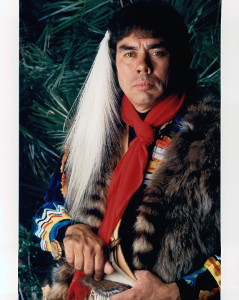
James E. Billie
Photo: Peter Gallagher
Video: Wrestling Alligators, Inc.
James E. Billie was born an outcast in the Florida swamps and grew from poverty to become chairman of the Seminole Tribe of Florida and the most influential man in his tribe. Some might say he is the most influential Native American leader in the past 100 years. Under his leadership the Seminole Tribe became wealthy from reservation gambling on its Florida land. Wrestling Alligators The New Seminole Wars, a 90-minute documentary completed in 2016, shines a bright light on Billie’s life, showcasing via vintage news clips, photos, and interviews how he became an alligator wrestler, war veteran, poet, and important leader of the Seminole Tribe of Florida. The film was shown at the Palm Beach Film last week and should be available in digital format soon. Scroll down to watch a video clip from the documentary.
Billie controlled a giant gaming organization that owns casinos and businesses all over the world including the Hard Rock Cafes and Casinos brand. Thanks in large part to his efforts, according to the documentary, the Seminole people’s lives were transformed over a 50 year span from living in small huts to being wealthy today. There are between 4,000 and 5,000 Seminoles in the tribe. As a young man Billie wrestled alligators for tourist tips. Later, he enlisted for Vietnam where he served with distinction. After the war, Billie started a chickee hut-building company and became interested in tribal politics. He was elected chairman in the late 1970s. Along the way Billie was nominated for a Grammy that launched his music career.
“We made the film to share James Billie’s and the tribe’s incredible story,” James Eowan, producer of the film, when asked by email about the purpose of the documentary. “This is a story most people have no idea about. Most people don’t know the tribe owns Hard Rock, for instance, and if they do, they have no idea how they got to that point.”
In 1972, Billie started a small high stakes bingo hall in Hollywood, Florida. It was an instant hit, leading to further gaming success, court fights with the state and federal government, and to a wealth not seen until then among Native Americans. He remains a controversial figure inside and outside his tribe, even at 72, according to promotional materials for the film. The tribe kicked him out of office as chairman of the Seminole Tribe for a decade, only to reelect him in 2011.
“We were extremely fortunate in that James Billie and the Seminoles of Florida have been covered by different facets of the media quite extensively over the years,” said Eowan when asked by email what percent of the documentary was from archival footage. “And the tribe also has quite an extensive archive of footage and stills. I would say a good 50 percent of the film is archival and the rest is footage we shot. But we ended up with close to 200 hours of shot footage once we were done.”
The film staff started working on the documentary in December of 2012 and finished it in April of 2016 with a budget of less than one million dollars from independent sources. The producers hope to capture the attention of viewers with a passing interest in Native Americans and that “the film’s quintessentially American story of a man and his people pulling themselves up from their bootstraps will appeal across all audiences.”
Posted by Elena del Valle on March 27, 2017
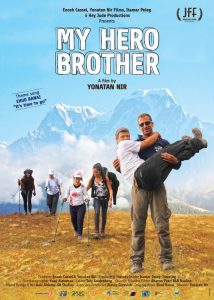
Poster for My Hero Brother
Photo, video: My Hero Brother
My Hero Brother, a heart-warming, 78-minute Israeli film in Hebrew with English subtitles completed June 2016, will be part of the 22 Annual Palm Beach Film Festival (visit pbifilmfest.org/event-calendar) taking place beginning March 29, 2017 in Palm Beach County, Florida. Scroll down to watch a trailer.
Happy and sad at the same time, the film is uplifting and inspiring. Filmed in India with a budget of $306,000 the movie shares the story of a group of remarkable young people with Down syndrome and their siblings who trek through the Indian Himalayas together. Along their journey unresolved conflicts and the complexities of growing up with a Down syndrome child in the family surface.
The idea germinated when Enosh Cassel, later a producer in the film, felt that his busy lifestyle was taking a toll because he wasn’t spending enough time with Hannan, his beloved Down syndrome brother. According to a spokesperson, “In 2011, the two embarked on a challenging trek in the Himalayas, in order to spend some much needed quality time together.” On their return, Cassel received requests from people who wanted to set out on a similar trek with their own Down syndrome sibling. On August 2013, after two years of planning and preparation, a group of 11 sibling couples (“neuro-typical” and Down syndrome) set on a journey to the Indian Himalayas, where My Hero Brother was filmed.
“In the course of the film, I hope that the viewer will undergo an experience that will change his way of looking at the main characters: not as ill-fated people who have been given a chance to experience a brief release from suffering, but rather as human beings blessed with qualities many of us yearn to have, struggling with their limitations in an highly admirable and courageous way, with the ability to open the hearts of those around them and turn them into better human beings,” the director states on the film website.
Yonatan Nir (Dolphin Boy) directed and produced by the film, which according to promotional information became an overnight success. In the first three months of distribution the producers booked 150 educational screenings in Israel, the film was accepted to several international film festivals, and won the Best Documentary Film Award and the Audience Choice Award at the Santa Barbara International Film Festival.
The filmmakers received funding from The Shalem Fund, Gesher Multicultural Film Fund, Mifal Hapais, Avi Chai Fund, and The Second Authority. In addition to the Film festival screening future information on where to view the movie may appear at myherobrother.org
Posted by Elena del Valle on March 22, 2017

Es Nuestro Momento poster – click image to enlarge
Photo, video: Buchanan’s
Hoping to connect with reggaeton music loving bicultural adult Latinos, 21 and older, who balance two cultures Buchanan’s, a Scottish whisky maker, partnered with SoundCloud to offer them the Es Nuestro Momento Feat. J Balvin contest campaign and competition. The contest ran March 6-20, 2017. The prize was a trip to the 2017 Latin Billboards in Miami and a chance to meet J Balvin in person. It included a microsite where participants could watch the Es Nuestro Momento video with Balvin singing a capella vocals of a new and unreleased track by the same name. To enter the contest, they were required to create their own version of the song including Balvin, and upload their version to the website for people to vote for their favorite version by April 7. Balvin will select the winner and announce his or her name via his Facebook page April 19. Scroll down to watch an Es Nuestro Momento campaign ad.
The contest was a segment of Buchanan’s integrated marketing campaign, which was promoted through out-of-home advertising, television spots, digital ads with dedicated responsible drinking creative, social media and experiential, in addition to this consumer contest. According to a spokesperson, the contest was “being amplified through PR, digital, social, and paid integrations including Nylon En Espanol, Telemundo, and Billboard.”
Balvin’s song, inspired by the brand’s recent 360 Es Nuestro Momento marketing campaign, was designed to celebrate the Latino community and its positive influence on American mainstream culture. A campaign spokesperson did not respond to a question about measurement of the contest results. According to a press release, “Through this contest, Buchanan’s aims to inspire people to pursue their passions and celebrate their successes.”
Born in Medellin, Colombia, J Balvin is a Latin-Grammy and Latin Billboard-winning musician. He became the first reggaeton artist to surpass one billion views on YouTube. He has collaborated with artists including Pharrell, Daddy Yankee, and Justin Bieber. SoundCloud is an online audio distribution platform where users may upload, record, promote, and share their original sounds.
Posted by Elena del Valle on March 16, 2017

AgeProof
Photo: Jean Chatzky courtesy of Ari Michaelson
In the last three decades, people are living longer in the United States. And the number of Americans 100 or older has increased 2,200 percent since 1950. At the same time, 84 percent of all healthcare spending is related to chronic diseases. But only 10 percent of people think about financial longevity. So say Jean Chatzky, Michael F. Roizen, MD with Ted Spiker, authors of AgeProof Living Longer Without Running Out of Money or Breaking a Hip (Grand Central Life & Style, $28) published last month. In the book, they share their opinions about physical and financial health and promise readers that “…if you take the steps we outline here, you’ll reduce your risk of developing chronic conditions, save more of those out-of-pocket and horrendous hospitalization costs, and live longer with fewer disabilities.”

Jean Chatzky,co-author, AgeProof
Chatzky and Roizen advocate regular physical and fiscal check-ups. For physicals they recommend self-tests and healthcare tests, including bone mineral density, prostate, mammogram, colonoscopy, mental health, rectal, eye, dental and other exams. On the fiscal side, they suggest reader assessments of income level, expenses, net worth, emergency savings, retirement, credit score, personal circumstances and changes. They point to economist Daniel Kahneman’s research as indicative that the benchmark income should be derived from the line between happiness and unhappiness, $75,000. The estimates outlined in the fiscal physical chapter are for people earning between $50,000 and $300,000.
In the Introduction, the authors offer to teach readers how to “make your money and good health last decades longer.” They were too busy to respond to questions by email, according to a spokesperson for their publishing company. A press release about the book, points to the authors’ belief in a crucial connection between health and wealth, and that the same principles that apply to a better body apply to an improved investment portfolio.
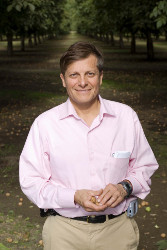
Michael F. Roizen, M.D.,co-author, Age-Proof
The 328-page hardcover book is divided into eight parts: System Checks, Breaking Bad Behavior, Pressure Situations, Team Works, Survival Instinct, Go Time, Making a Living, and Domestic Engineering, and 16 chapters. The chapters are written in an easy to read style with sidebar quotes from the authors.
Chatzky, a financial journalist, author and motivational speaker, is a financial expert on the Today Show. Roizen, a board-certified anesthesiologist and internist, served as chief wellness officer at the Cleveland Clinic. He received the Paul. G. Rogers Best Medical Communicator award from the National Library of Medicine. Spiker, professor and chair, Department of Journalism at the University of Florida, is co-author of 20 books.

Click to buy AgeProof
Comments:
Filed Under: Books
Posted by Elena del Valle on March 9, 2017
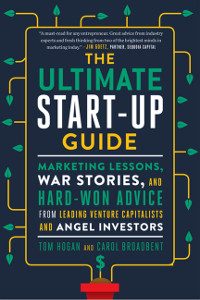
The Ultimate Start-Up Guide
Photos: Ty Nowicki, Robin Bulanti
Silicon Valley marketers Tom Hogan and Carol Broadbent, founders, Crowded Ocean, recently released The Ultimate Start-Up Guide: Marketing Lessons, War Stories, And Hard-Won Advice From Leading Venture Capitalists And Angel Investors (Career Press, $16.99), a how-to book to help start-up companies succeed published this year. What do they know about start-ups and failure? During their initial year they made zero money. Ninety percent of new companies, they point out, fail within two years.
They explained by email that they wrote the book, their first, for “Anyone who is thinking of starting their own company—tech or otherwise; anyone thinking of getting involved in a startup; or anyone who wants to better understand how startups (and Silicon Valley) work.”
From concept to final galleys it took them one year to complete the book project. The 223-page softcover book, written in an easy to read candid style, is divided into 24 chapters. In the chapters, there are graphs to illustrate information or outline data and easy to see quotes from business people in gray boxes. At the end of each chapter there is a suggested reading list
The authors set out to incorporate lessons from dozens clients as well as venture capitalists and angel investors, to help entrepreneurs avoid the pitfalls that cause most start-ups to fold. They address strategies for hiring and building a team, culture, and values; how to pitch the company, secure funding, and distribute equity; best practices in launching a business and sustaining market momentum; and how they believe venture capitalist investors think, evaluate new companies, and advise entrepreneurs. Although in the first chapter they outline their firm belief in the importance of a sales driven marketing strategy, they also value public relations, Broadbent explained by email.
“As we tell our startup clients, PR is probably the highest ROI marketing investment you can make and a great source of lead generation,” she said. “That’s because editorial coverage of your company, product or service is perceived by would-be buyers as objective validation. In other words, favorable coverage of your startup in the places where your prospects go (trade press, social media, blogs, Twitter, Pinterest, you name it) will go a long way to shaping the perception of your brand, motivate buyers to find you and hopefully to become your customer. That’s why for 100 percent of our startup clients, we have made PR an ingredient in their marketing program mix.”
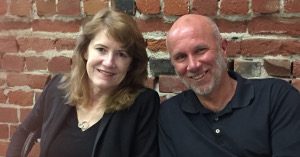
Carol Broadbent and Tom Hogan, authors, The Ultimate Start-Up Guide
“A startup can be an idea seeking traction (from early funders), an early-stage company (friends and founders money) or a company that has received its first round of funding,” they said. “Another way to define it is: any company that has yet to find its rhythm in the market (no matter its age).”
When asked about the greatest challenge the book presented they replied, “The challenge, as you’d guess, given our workload (3 clients at a time and it’s just the two of us) and the pace of Silicon Valley, was finding the time to write the book. And to get the participation of past clients and VCs who are as busy as us. The reward has been in the early reviews, not just from strangers who have read the book and commented on it but from clients (and possible new clients) who contact us and tell us how much they learned in reading the book. (Note: it’s not that we’ve discovered something new or unique—it’s that we package and present it in practical ways that they can use in their daily operations.”
Prior to founding Crowded Ocean, Broadbent was vice president of corporate marketing at Bay Networks, senior vice president of corporate marketing at Aspect Communications, and director of marketing at Sun Microsystems. In addition, she led marketing at two Kleiner Perkins-funded startups: vice president of marketing at Asera, and director of market development at Go Corporation.
Hogan has more than 25 years of marketing experience, including roles as vice president of marketing at Oracle, Borland, Lucent, and VitalSigns Software. As Oracle’s original creative director, he managed the global advertising, direct marketing, seminar and trade show, and creative departments.

Click to buy The Ultimate Start-Up Guide
Comments:
Filed Under: Books
Posted by Elena del Valle on March 1, 2017
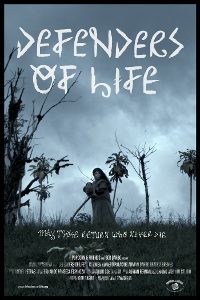
The Defenders of Life poster
Photos by Julio Costantini © 2015 Popcorn & Friends, video clips used with permission © 2015 Popcorn & Friends
In 2015, film director Dana Ziyasheva and her four person team completed Defenders of Life, a 94-minute film in three languages, Ngabere, Spanish, and English, about underage marriage among the Ngäbe people of Costa Rica. Much of the dialogue is in Ngabere or Spanish with English subtitles. It was titled after Defenders of Life, an ancient Ngäbe sacred song celebrating the tribe’s respect for and symbiotic relationship with nature, ancestors and fertility. The film is available exclusively at Flix Premiere, an online video on demand service. Scroll down to watch video clips from the movie with subtitles.
Defenders of Life, a fiction film about real life issues, was born out of the real-life friendship between Carmen, a Ngäbe matriarch, and the director while she was a guest at Carmen’s house. During that time they discussed Carmen’s life and her hopes and fears for her daughters and granddaughters. Much of the film was shot on Ngäbe land and featuring Ngäbe.
“We both wanted to give voice to the voiceless, leaving a proud testimony of her ancient civilization under threat and show the place and challenges of women in this culture,” Ziyasheva said in a press release. “We both wanted it to be aesthetic and allegorical. Carmen’s story is my story too. I was afraid to break away from my society in defiance of the decision-makers of my country. I was equally afraid to leave the comfort and security of the United Nations. It doesn’t matter how good or bad a life situation is, people fear the unknown. To make audiences around the world relate to a story of an indigenous woman lost in a rainforest was my goal as film director in this project.”
Defenders of Life tells the story of Esmeralda, a Ngäbe indigenous girl who lives on a reservation in Costa Rica. Esmeralda’s grandmother Carmen raises her alone because the girl’s mother was murdered by her jealous boyfriend. In the movie, as in real life, when a Ngäbe girl reaches puberty, she becomes eligible for marriage, as is the custom of the tribe. When the village elder asks for her hand in marriage, Carmen must decide whether Esmeralda should follow in the footsteps of Ngäbe women or break away from the tradition and long term from the community.
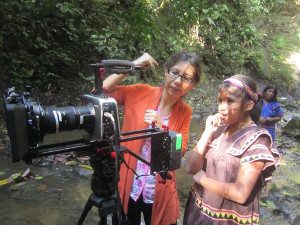
During the filming of Defenders of Life
“We had a script, but since the Ngäbe actors playing their own roles were all non-professionals, most of whom don’t know how to read, we relied a lot on rehearsals and improvisation. I wanted the film to go beyond the ethnographic clichés. We show that Ngäbes are multi-layered, with contradictions, and made of good things and bad things like everyone else. But most of all, they are authentic, true to themselves and they don’t get intimidated by outside pressure,” said Ziyasheva.
In the film, Pamela, an anthropologist from the University of Costa Rica, and her son Feb, an American tween, advocate different approaches to the dilemma of an indigenous people’s society. Through his friendship with Esmeralda, Feb becomes part of tribal dynamic, while well-meaning Pamela aims to force her notion of development on the Ngäbe. Most of the filming took place in the indigenous Ngäbe community of La Casona in Southern Costa Rica, near the border with Panama, and a little bit in San Jose, the Costa Rican capital.
The film, produced by Popcorn & Friends, was recognized with award at Mostra Amazonas de Cinema, Brazil; Burbank International Film Festival, California; Viva! Latino Film Festival NYC Int’l, New York City; Madrid International Film Festival 2016; Love International Children Film Festival, California; International Film Festival for Peace, Inspiration and Equality, Indonesia; Global Independent Film Awards, online; and Depth of Field International Film Festival, online.
“To make this crazy guerilla-style project possible, I was lucky to assemble a unique international team of passionate film professionals from France, Brazil, Cuba and Costa Rica. They were all 100 percent dedicated to the idea of living and working with the Ngäbe in the rain forest in order to make this film, no matter the hardships, budget constraints or physical risks,” said Igor Darbo, producer, by email via the film’s publicist. “Snakes were never too far, both in the story and on set! Of course it also took time to gain the Ngabe’s trust, especially the men’s and after visiting the community multiple times and taking part in their festivals and assemblies, I develop a bond with Don Francisco, the elder leader who then agreed to play the old man marrying the teenage girl in the film. That bond was the mirror of Dana’s relationship with Dona Carmen, the protagonist and that’s what made the film possible. As a producer, I am extremely proud that Defenders of Life was able to touch the heart of people on all continents, but most of all of the enthusiastic reception it got from the Ngäbe themselves.”
Ziyasheva is an award-winning author, scriptwriter and film director from Kazakhstan. She has 25 years of field experience as a journalist. As adviser for Communication and Information of the United Nations she has traveled from Iraq to China and Central America. In 2016, her debut novel Shock was published in France.
Popcorn & Friends is a boutique production company founded in March 2012 by Darbo to produce “highly creative international films that are both entertaining and meaningful.” After winning the Best Co-Production Project award at the Shanghai International Film Festival for its high-concept Chinese treasure hunt The Dragon Angel, Popcorn & Friends produced Defenders of Life.
Between 200,000 and 250,000 Ngäbe people live on both sides of the border between Panama and Costa Rica. The community in the film is about 1,500 people large in Southern Costa Rica. According to the film producers, the Ngäbe (Ngabere is their language) are torn between tradition and assimilation into the modern society. Their youth start to slowly lose command of their native idioms and follow traditions less while education in Spanish and work opportunities in the city draw them further away from their ancient roots.
The proposal
The snakewoman




 The Power of Breaking Fear
The Power of Breaking Fear
























